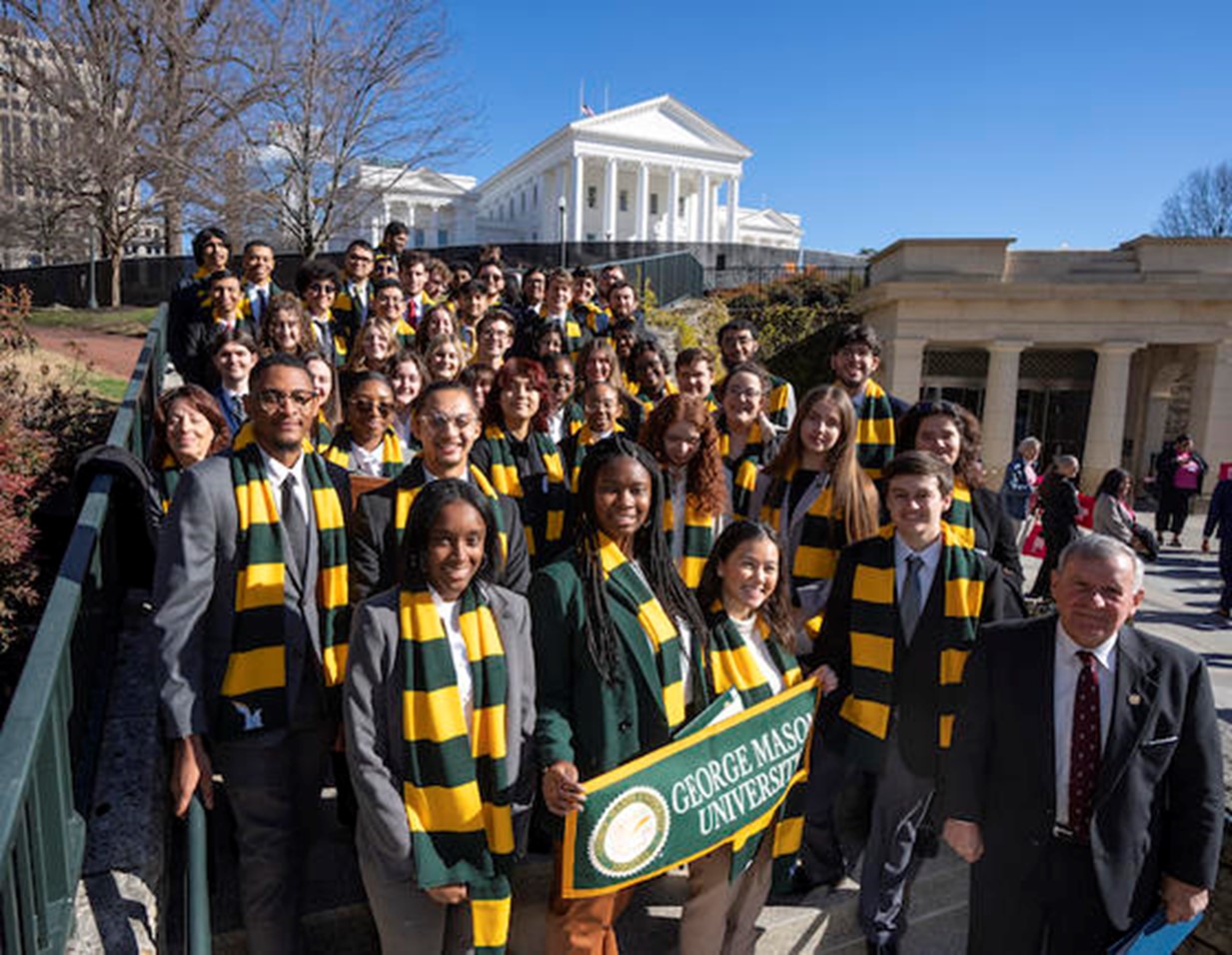The Road to Richmond: George Mason University Students Prepare for Mason Lobbies
by Zayd Hamid
As the Virginia General Assembly session progresses, George Mason University students are preparing for their annual advocacy day to Richmond on February 12th. Since 2013, they have met with legislators to share their higher education experiences in support of GMU’s priorities.
Kaylee Fernandez, the lead student organizer for Mason Lobbies 2025, underscores the critical role of student voices in advancing the university’s government relations strategy as it relates to funding the student experience. “The funding we are advocating for from the General Assembly will mitigate tuition increases, saving students money while ensuring that the services and infrastructure that we rely on for our studies and campus experience remain maintained.” Over the past few weeks, Fernandez has trained several dozen students to share their student stories in the context of the university’s budget priorities.
The university’s paramount priority is increasing appropriations for its general operations. Those appropriations mitigate tuition costs, maintain competitive faculty and staff pay, and fund student services. According to a recent commission report, GMU receives the lowest per-student operations funding out of all Virginia four-year institutions despite educating the most students per year. Companion bills have been submitted by Senator Barbara Favola and Delegate David Bulova to increase GMU’s base education and general operations budget with $18 million in additional and recurring funding for the FY25-26 biennium. If passed, this would align the university’s funding to SCHEV’s recommended amount. This priority will be the primary focus of students’ meetings with legislators.
GMU’s priorities also include securing $32 million in one-time funding to ameliorate maintenance deficits across campuses. Despite being the largest public university in the Commonwealth, it receives disproportionally little funding support for maintenance reserves compared to other four-year public universities. Companion bills to rectify that funding disparity have been submitted by Prince William County representative and GMU alumnus Senator Jeremy McPike and Delegate Paul Krizek. Were the university to receive those appropriations increases, it could complete the next year’s critical maintenance projects. These planned projects include repairs to elevators, doors, windows, HVAC, and roofs.
GMU also seeks $12.4 million to continue development of its Interdisciplinary Science and Engineering Building (ISEB) project. Companion bills for development funding have been submitted by Senator David Marsden and Prince William County representative Delegate Briana Sewell. By replacing the aging David King and Planetary Science Halls with the ISEB project, GMU intends to bolster Virginia’s Tech Talent Investment Program by providing modern instructional laboratory spaces supporting student studies in computer science, applied computer science, computer engineering, software engineering, and other STEM fields. This will support GMU students’ preparation for jobs in Northern Virginia’s growing technology sector, such as the hundreds of jobs created by Micron’s recent $2.17 billion investment to grow its semiconductor production facility in Manassas.
Undergraduate student researchers like Sofie Strompf, a published molecular biologist at the Sci-Tech campus, are excited for the ISEB project to bring new STEM opportunities to Fairfax and the larger Northern Virginia community. “I am fortunate to work in a research laboratory on the SciTech campus. Working in scientific spaces on both the GMU Fairfax and Sci-Tech campuses, I see a need for additional interdisciplinary scientific facilities, particularly those that are built to support modern-day technologies. The General Assembly funding the building of the ISEB will support thousands of STEM students in their studies and research careers.” Strompf looks forward to engaging with legislators, including Prince William County representative Del. Ian Lovejoy, on the ISEB project and other budget priorities.
The full list of GMU legislative priorities is available on its Office of Government and Community Relations website. Questions from the community about the university’s legislative priorities can be directed to Lauren Posey and Tyler Javonillo, GMU’s director and assistant director of state government relations. Questions from legislators during Mason Lobbies will be met with answers from students trained in advocacy by Fernandez and her team.



